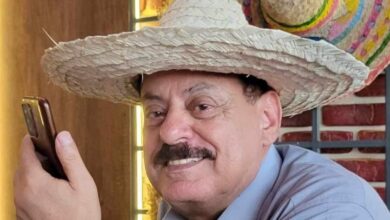Rickets

Yemeni mp
Ahmed Saif Hashed
The English language has been a great disappointment to me, accompanying me throughout my education at every stage, including the two required years at university. It is a burden I have long suffered from, unable to escape my failure in it—a handicap from which I have yet to recover. This subject is the only one that fills me with anxiety from early morning, leaving me embarrassed as I attend its lengthy lessons, which feel as interminable as the Day of Judgment. It is the only subject that makes me feel an overwhelming sense of helplessness, robbing me completely of my positive energy. It consumes me without resistance, leaving me with nothing to say.
I feel a deep sense of depression just at the thought of it. If you want to ruin my laughter in college, just remind me of it. An hour in that class feels like witnessing the horrors of the apocalypse—an hour that equates to fifty thousand years of what you count. My struggle and handicap in university were shared only with my classmate and friend, Obaid Saleh Al-Shoaibi.
I yearn for all my other courses, striving to always sit in the front row, facing the professor eye to eye. Yet, when it comes to English class, I rush to the back of the room. The one who shares this hurried retreat with me is my friend Obaid. We tried to hide from the gaze of the professor in our first and second years, ducking behind the bodies and heads of our classmates sitting in front of us. If I were to suffer from Alzheimer’s, I would forget all faces—except for those of my English teachers. It remains one of my enduring complexes in life.
Once, my classmate Obaid, like me, was trying to hide his head behind the heads of others. When the teacher noticed what Obaid was doing, he attempted to catch him with a question. As Obaid tilted his head to the left, the teacher leaned with him and said, “Yes, you!” directing the question at him. Instead of answering, Obaid tilted his head to the right, and the teacher followed suit. The teacher was determined to catch him, repeating, “Yes, you… you!” Obaid had no choice but to bow his head down, trying to conceal himself behind the head of the classmate in front of him. The teacher stood on his tiptoes, gesturing with his hands, leaving Obaid helpless. Instead of answering the question, Obaid pointed to me and said, “Not me, sir; it’s my friend here!” This caused the whole class to burst into laughter.
Obaid often confused the sounds of “C” and “S,” so he would ask me for help when the teacher posed a question. Instead of aiding him in distinguishing between the two, I would gesture and say, “It’s ‘R’,” which would send our classmates into fits of laughter. Some students eagerly awaited our antics each English class, as we often resembled the silent film character “Mr. Bean,” where even our spoken words seemed comically exaggerated.
One day, the English teacher asked me to form a question in English. Panic seized me, and suddenly I remembered the word “sleep.” Adding it to the question, I blurted out, “Where do you sleep?” Laughter erupted from everyone, including the teacher.
Obaid wanted to express a thought that was troubling him at that moment, so when the teacher asked him to come up with an English sentence, he candidly said, “Teacher, during your class, I’m willing to carry a bag of salt and run around the field until you finish your lesson, but please don’t ask me!” This made everyone laugh even harder.
In every class, some classmates would wait to see what we might say if called upon, eager to laugh. Meanwhile, Obaid and I prayed for safety—just safety—throughout the lesson. That was all we hoped for. When the class ended, we sighed in relief, feeling as if we had crossed a perilous path safely.
Obaid and I remained loyal to each other even on the day of the English exam, sitting side by side, which piqued the curiosity and laughter of our classmates. It seemed odd to them, like the brothers Khairy and his sibling. I would answer the reading comprehension questions by searching for keywords in the questions and then finding similar words in the text, knowing that would lead me to the correct answer. I would write out the answers point by point. This method worked for the most part, except when the questions played tricks on us.
I relied on comparison and intuition when answering. Sometimes, while searching for an answer, I felt like a blind person using a cane to navigate. Occasionally, I depended on Obaid’s bravery, as my own courage often failed me in such situations.
When the exam time was nearly up, and the teacher granted an additional five minutes, I would write anything I could, ensuring I didn’t leave a question unanswered, even if my responses were incomprehensible to both Arabs and English speakers alike.
My handwriting in English was beautiful and neat, but what I scribbled in those last moments was illegible to anyone, including myself. I knew the teacher wouldn’t understand anything either, but I could sense that his least reaction would be a smile, and that was enough for me. Perhaps he thought, “This student is strange and unique, even in his ignorance.” For me, the important thing was to try and never leave a question unanswered. I would write anything. It was the wasted time I refused to squander, even if what I wrote was a waste.
In the end, Obaid and I aimed to barely scrape by with half marks for passing. I remember one time during grading, my score in English was 26 out of 50. I thought to myself that the extra points I wrote in the last moments didn’t even exist in English dictionaries. No one, including me, understood their meaning; they were merely a desperate attempt, perhaps even gibberish, that would bring me luck and acceptance.
* * *






